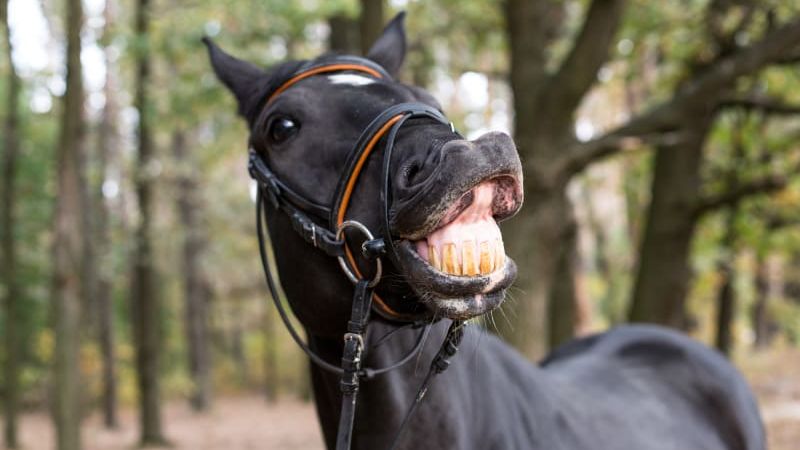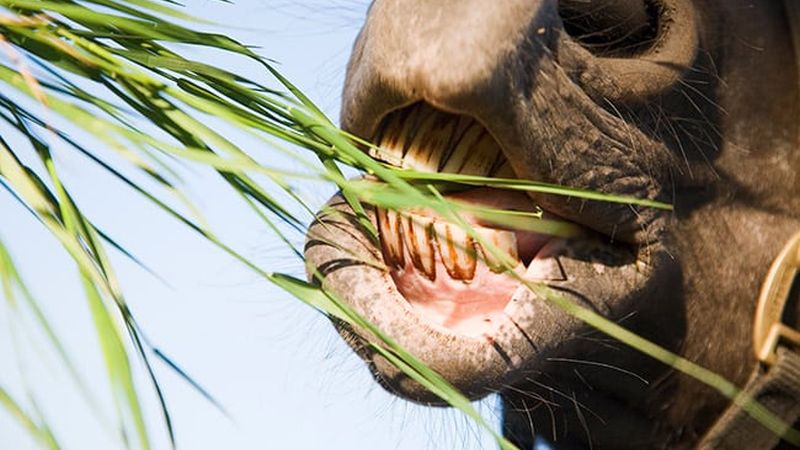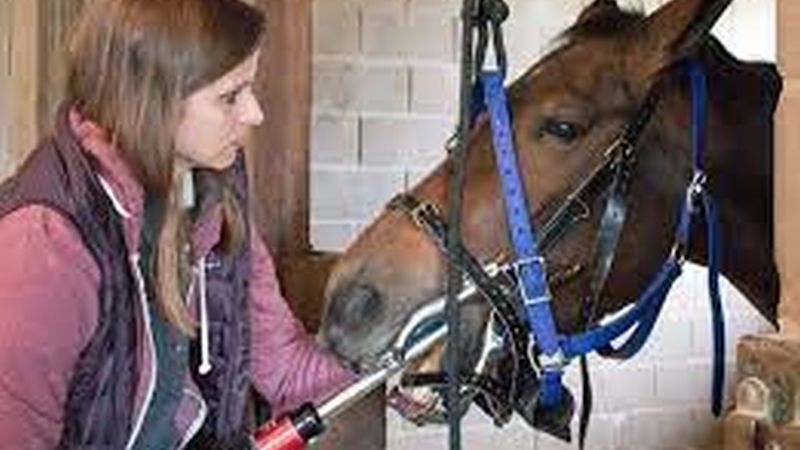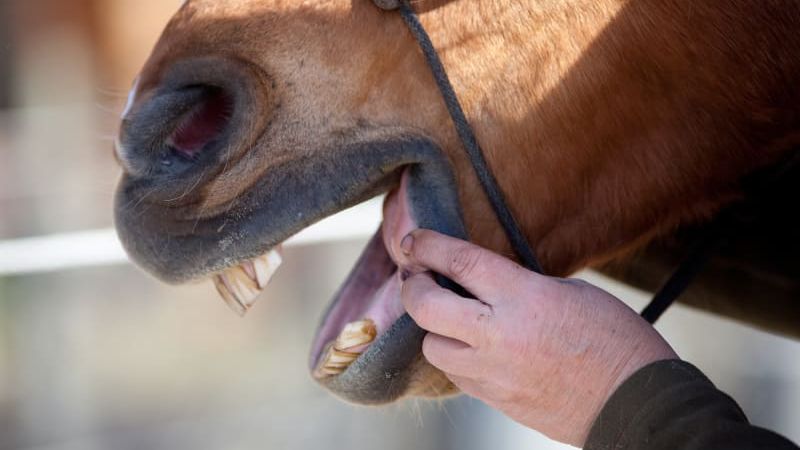As a veterinarian, I have witnessed firsthand the impact of oral health on a horse’s overall well-being. A healthy mouth is crucial for a horse’s ability to eat, chew, and communicate effectively. In this article, we will delve into the importance of maintaining a healthy mouth for horses and explore the essential practices that contribute to their dental well-being.
The Role of Proper Mastication
Proper mastication is essential for a horse’s digestion and nutrient absorption. Horses are herbivores with a complex digestive system designed to process fibrous plant materials. Chewing is the first step in the digestive process, and it enables the horse to break down food into smaller particles, making it easier for the digestive enzymes to access and extract nutrients efficiently.
A healthy mouth with well-maintained teeth allows horses to chew effectively and derive maximum nutrition from their diet. Conversely, dental issues, such as sharp points or uneven wear, can lead to improper mastication, causing reduced feed utilization, colic, and weight loss.
The Impact on Performance and Behavior

A horse’s oral health can significantly impact its performance and behavior. Horses with dental issues may experience discomfort or pain while riding or being ridden, leading to resistance, difficulty maintaining a consistent frame, or even bucking.
Behavioral problems stemming from dental pain can also affect a horse’s willingness to cooperate during grooming or training sessions. These issues can compromise the horse’s training progress and create safety risks for both the horse and the rider.
Regular dental examinations and treatments help identify and address dental problems promptly, ensuring the horse’s comfort and facilitating smoother training and performance.
Dental Care at Different Life Stages
Equine dental care should be tailored to the specific needs of horses at different life stages. Understanding the evolving dental requirements of horses is crucial for maintaining their oral health throughout their lives.
Foals require early dental care to address potential developmental issues. A veterinarian experienced in equine dentistry should examine foals within the first few months of their life to ensure proper dental alignment, eruption of deciduous (baby) teeth, and the absence of any abnormalities that could affect their future dental health.
Young horses, known as yearlings and two-year-olds, experience significant dental changes as their adult teeth erupt and replace their baby teeth. Regular dental check-ups during this period are vital to monitor the development of adult teeth, detect any abnormalities, and address issues like retained deciduous teeth or malocclusions.
Adult horses benefit from routine dental examinations and floating to maintain their oral health. Annual dental check-ups allow veterinarians to identify and address issues such as sharp points, hooks, wave mouth, or other dental abnormalities that may impact the horse’s chewing ability and overall health.
Dietary Considerations for Dental Health
Diet plays a crucial role in maintaining equine dental health. Horses are natural grazers, and their teeth are designed to wear down naturally as they chew on fibrous forage. A diet that consists mainly of high-quality hay or pasture helps promote natural tooth wear and proper mastication.

However, modern feeding practices, such as providing predominantly processed feeds or concentrates, can contribute to dental issues. These feeds are often easier to chew and may not provide the necessary wear for the horse’s teeth. Supplementing the diet with long-stemmed forage, such as hay, encourages chewing and natural tooth wear.
Horses with dental abnormalities or difficulty chewing may require modifications to their diet. Soaking hay or providing alternative forms of forage, such as chopped hay or hay cubes, can make it easier for horses with dental issues to consume necessary nutrients.
Regular Oral Hygiene Practices
In addition to regular veterinary dental care, implementing good oral hygiene practices can contribute to a horse’s dental health. Daily observations and simple tasks can help maintain a healthy mouth.
Regularly inspecting your horse’s mouth allows you to identify any signs of dental problems, such as swelling, redness, or abnormal chewing behavior. Gently lifting the lips and examining the teeth for sharp points or abnormalities can provide valuable information about the horse’s oral health.
Providing appropriate dental toys or treats can help promote natural tooth wear and stimulate chewing activity. These items should be specifically designed for equine dental health and encourage the horse to chew and exercise its jaw muscles.
It’s important to note that dental hygiene practices for horses should not involve attempting to perform dental procedures without proper training and equipment. Dental work should always be performed by a veterinarian skilled in equine dentistry to ensure the safety and well-being of the horse.
Regular Dental Examinations for Geriatric Horses
Geriatric horses, typically aged 20 years and older, require special attention to their dental health. Older horses may experience age-related dental issues such as tooth loss, excessive tooth wear, or gum disease. Regular dental examinations become even more critical during this stage of a horse’s life.
Geriatric horses may benefit from dental treatments that address specific issues such as loose or missing teeth, periodontal disease, or the need for extractions. These interventions can help manage pain and discomfort, maintain adequate nutrition, and improve the horse’s quality of life.

Maintaining a healthy mouth is essential for the overall health and well-being of horses. Implementing best practices for equine dental care, including regular dental examinations at different life stages, proper dietary considerations, regular oral hygiene practices, and specific attention to geriatric horses, ensures that horses can eat, chew, and communicate effectively.
As a veterinarian, I emphasize the importance of proactive dental care and the involvement of qualified professionals in equine dentistry. By prioritizing equine oral health, we can help horses lead healthy, comfortable lives and minimize the risk of dental issues that can impact their overall health and performance.
